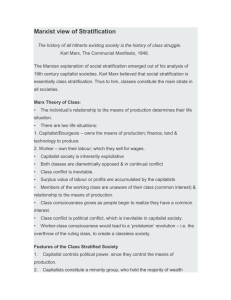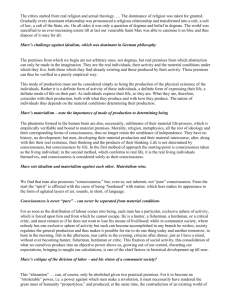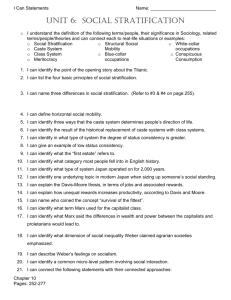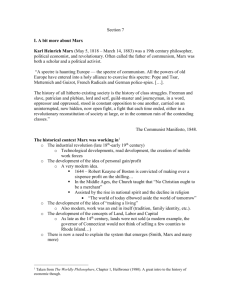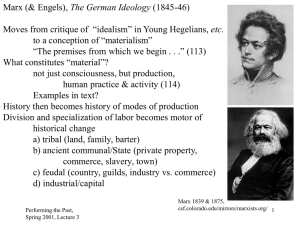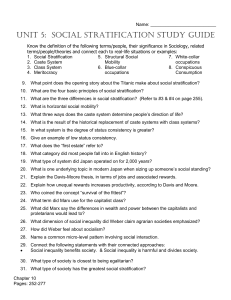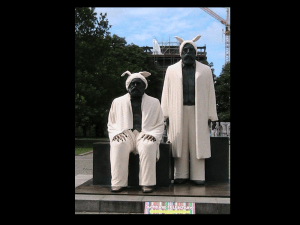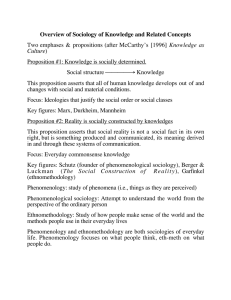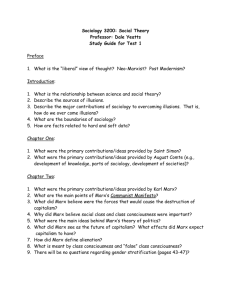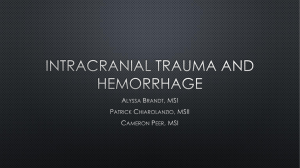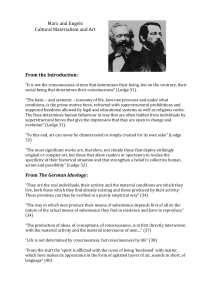Explaining Stratification
advertisement
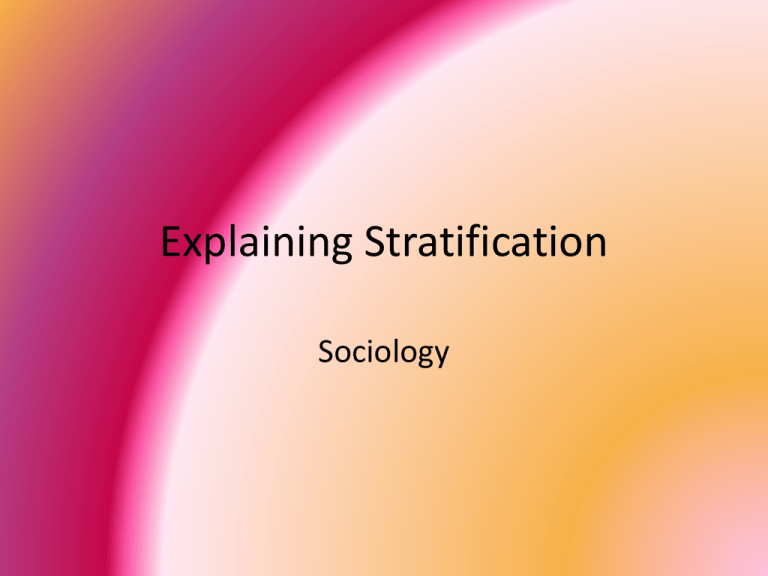
Explaining Stratification Sociology 1. Deficiency Theory • Economic stratification occurs because of the individual’s variations in ability. • Not a sociological issue but an issue that involves Biology and Psychology. • Ex. The Upper class obtain and retain their rewards because they are smarter, harder working, etc. • Theory was popular in the late 19th century (Social Darwinism). Deficiency Theory • If they are right…then helping the disadvantaged is a waste of money. • Propose ending programs like Head Start and AFDC. • Most sociologist do not agree with this theory: – Ignore social structures – Blames the victim 2. Davis-Moore Thesis • Functionalism • Inequality serves two vital functions 1. It motivates people to work hard 2. It ensures that the key statuses in society are occupied by highly capable people. Replaceability: easier to replace garbage collectors than brain surgeons. Davis-Moore thesis • How can we lure people to become brain surgeons? Give them substantial rewards (power, wealth, and prestige). • Critics of this theory: Some people enjoy upper-class status, not b/c of merit but b/c of their ancestors. Gender bias: social workers, teachers, and child care provides receive relatively low salaries. Continue from previous slide • Which occupations do we reward? Most important occupations should be paid the most….why are rock stars, athletes, and movie actors paid millions of dollars…way more than doctors and soldiers. 3. Conflict Theory • Karl Marx • Power is in the hands of those groups in society that own the means of production. Those who do not own the means are less powerful and have less wealth b/c of that. • Ruling class: Bourgeoisie • Workers/other classes: proletariat • The dominant class benefits from maintaining its control and power. Marx • Lower class must obtain Class consciousness: must become aware of their standing in society. • Ruling class does not want Class consciousness to happen! • Ruling class wants False consciousness: subordinate groups believe that they deserve to be where they are at in society. Marx • Evaluation: • His work led to the development of the Conflict Perspective. • False consciousness has been applied in many different context: race/ethnic/gender oppression. • Criticism: The theory is too simplistic 4. Symbolic Interactionism • How does class impact patterns of everyday social life? • Important to examine status symbols • Examples:home (mansion or public housing), clothing (clothes worn on the job) old expression “in the working class your name goes on your shirt…in the middle class, on the door of your office or desk…in the upper class, on your company”. • Nonmaterial status: the way you speak. New Topic • Research Techniques used in Sociology to rank individuals according to social class. Three popular methods • 1. Reputational method: individuals in the community are asked to rank other community members based on what they know of their lifestyle. • 2. Subjective method: individuals are asked to determine their own social rank. • 3. Objective method: sociologists define social class by examine one’s income, occupation, and education. Exam • 50 multiple choice questions • Review the “prestige ranking chart in the textbook” • Extra credit questions: written. • Exam worth 100 points. • Chapter 8
